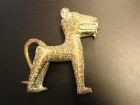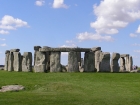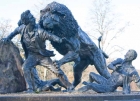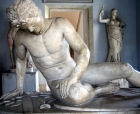Enquiries
A key cornerstone of history is historical enquiry. Quality history provision has historical enquiry at its heart. Through historical enquiry children can be shown how to ask questions, select and evaluate evidence and to make judgments about the past. It can also be a vital way of showing them that there is often more than one side to a story and that history is multi-perspective. Historical enquiry is all about asking questions or hypothesising about the past that we hope the evidence will help us to answer, but getting the enquiry question right is not always easy. In this section you will find resources and guidance that will help you to plan challenging enquiries for your children that will help them to develop as historians.
-

Place-names and the National Curriculum for History
ArticleClick to view -

Teaching Ancient Egypt
ArticleClick to view -

Eweka's story: Benin and Big Picture History
ArticleClick to view -

Stone Age to Iron Age - overview and depth
ArticleClick to view -

Mesopotamia: Making a picture of Mesopotamia in our heads
ArticleClick to view -

Political literacy: citizenship through the English national curriculum's the Romans in Britain study unit
ArticleClick to view -

A creative Egyptian project
ArticleClick to view -

In My View: Creativity & History
ArticleClick to view -

Thematic or topic based whole school curriculum planning
ArticleClick to view -

Chronology & Topics at Key Stage 2
ArticleClick to view -

Enhancing temporal cognition: Practical activities for the primary classroom
ArticleClick to view -

From Champion to Hero: Engaging Pupils in a study of significant Olympians
ArticleClick to view -

Primary History and planning for teaching the Olympics - four curricular models
ArticleClick to view -

Investigating the ancient Olympic games: A Case Study
ArticleClick to view -

William Brookes and the Olympic Games
ArticleClick to view -

Shropshire's Secret Olympic History
ArticleClick to view -

Local History and the 2012 Olympics
ArticleClick to view -

Learning to engage with documents through role play
ArticleClick to view -

A history of the world - 100 objects that tell a story
ArticleClick to view -

Pride in place: What does historical geographical and social understanding look like?
ArticleClick to view

